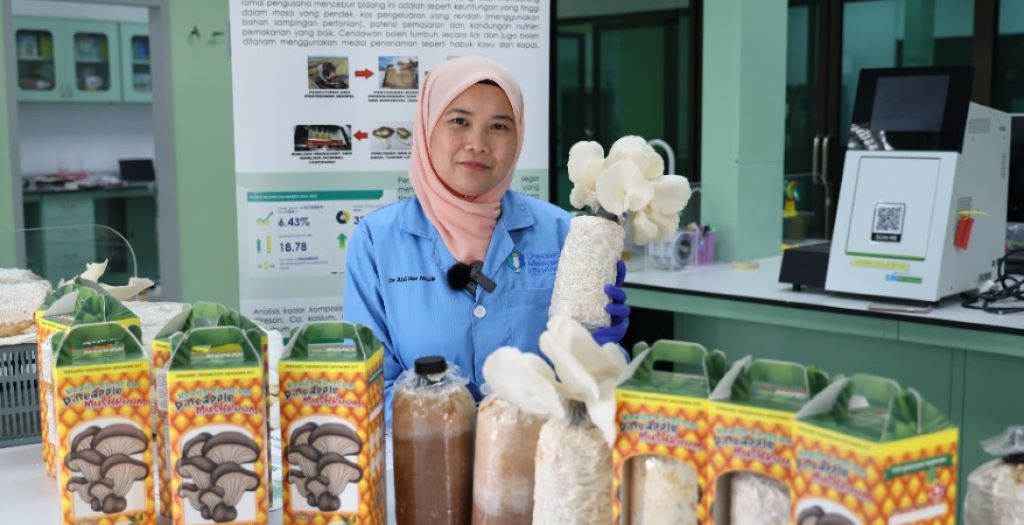UMPSA Researchers develop innovative mushroom cultivation product using pineapple waste

Pineapple plants, once considered waste in the agricultural industry, are now gaining recognition for adding value to Malaysia's agricultural sector.
The Malaysian Pineapple Industry Board (LPNM) manages the pineapple industry in Malaysia. According to the Crop Area Statistics Booklet, Department of Agriculture Malaysia 2021, 14,072 hectares of pineapple plants have been successfully cultivated, producing 325,028 metric tons of fresh pineapple. However, the uncontrolled farming of pineapples generates significant waste, contributing to environmental imbalance.
Researchers at Universiti Malaysia Pahang Al-Sultan Abdullah (UMPSA), led by Associate Professor Dr. Aizi Nor Mazila Ramli, have innovatively repurposed this pineapple waste as the main substrate for mushroom blocks.
Dr. Aizi was inspired by the vast potential of pineapple waste and saw an opportunity to produce oyster mushroom blocks through sustainable cultivation techniques.
"The study we conducted reveals that this mushroom cultivation technique using pineapple waste is not only easier and more cost-effective but also suitable for large-scale commercialization and broader market reach. Additionally, the quality of the mushrooms produced rivals that of mushrooms grown using conventional substrates, such as wood dust," he stated.
Dr. Aizi emphasized that this technique indirectly reduces dependence on wood dust, a resource in decline in the market.
The pineapple mushroom project aligns with the national food security initiative, supporting Sustainable Development Goals (SDG) 1 and SDG 2—No Poverty and Zero Hunger in Malaysia. The innovative product targets the community, especially the low-income group (B40), by providing income-generating opportunities in the mushroom industry and additional revenue for pineapple farming operators.
"This project not only benefits local communities but also raises awareness among farmers and the general public about the economic value of agricultural waste when utilized effectively. It adds value to pineapple waste, contributing to the diversity of the country's food products. The research study on pineapple waste innovation has received cooperation from LPNM and various industry partners since 2014," he added.
UMPSA Researchers develop innovative mushroom cultivation product using pineapple waste
In addition to the pineapple mushroom project, the research team has developed other products, including a meat tenderizer from enzymes extracted from pineapple waste, PineBaby—a safe detergent for baby items produced from pineapple waste enzymes, and the latest product, prebiotics from pineapple waste, offering numerous health benefits.
Dr. Aizi plans to collaborate further with government agencies and interested parties to transfer technology to the target group, exploring the potential for downstream products through pineapple mushroom production.

